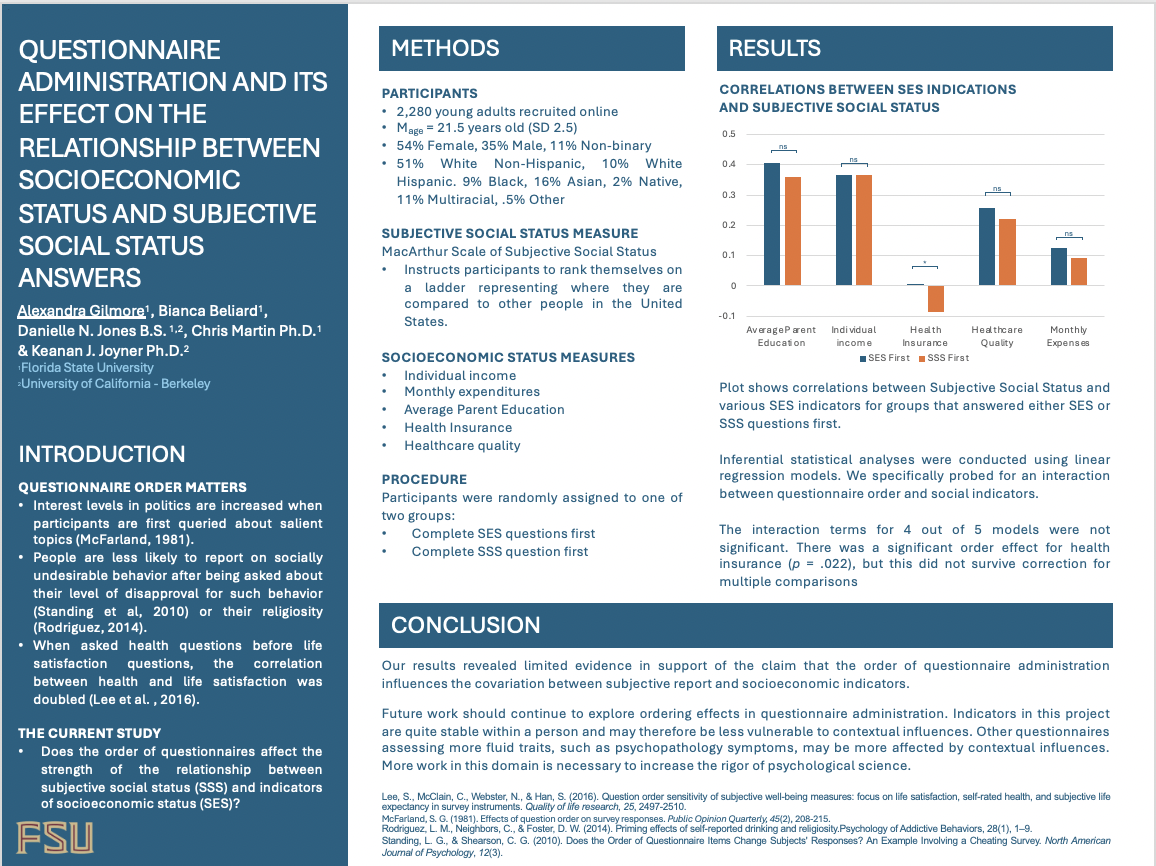Research Symposium
25th annual Undergraduate Research Symposium, April 1, 2025
Alexandra Gilmore Poster Session 1: 9:30 am - 10:30 am/ Poster #18

BIO
My name is Alexandra but I go by Lex and I am from Tallahassee, Florida. I am passionate about psychology and learning how to cultivate an inclusive space for everyone in the mental health field. My goal is to become a clinical psychologist so that I will be better equipped to help others who may be struggling with mental health issues. In my free time, I volunteer as a crisis counselor and have found that serving my community in this way has been incredibly rewarding and has helped me become a more supportive community member and inquisitive researcher.
QUESTIONNAIRE ADMINISTRATION AND ITS EFFECT ON THE RELATIONSHIP BETWEEN SOCIOECONOMIC STATUS AND SUBJECTIVE SOCIAL STATUS ANSWERS
Authors: Alexandra Gilmore, Chris MartinStudent Major: Psychology
Mentor: Chris Martin
Mentor's Department: Psychology Mentor's College: Arts and Sciences Co-Presenters:
Abstract
The order in which questionnaires are administered seems to alter responses across various domains. Previous literature has shown that interest levels in politics is increased when participants are first queried about salient topics (McFarland, 1981), and people are less likely to report on socially undesirable behavior after being asked to report their levels of disapproval for such behavior (Standing et al, 2010) or their religiosity (Rodriguez, 2014). Perhaps less obviously, the ordering of questionnaires measuring similar constructs can change the relationship between those two constructs. For example, Lee et al. (2016) asked participants to report on their life satisfaction and their health, randomizing which questionnaire appeared first. When participants answered health questions before life satisfaction questions, the correlation between health and life satisfaction was doubled. The current study extends this investigation to subjective social status (SSS) and objective measures of socioeconomic status (SES) in 2,280 young adults recruited via social media to complete a survey online. Participants completed the MacArthur Scale of Subjective Social Status which asks them to rank themselves on a scale of 1-10 compared to other people in the United States and also reported on objective SES measures including family income, monthly expenditures, education, and healthcare quality. Participants were randomized to complete either SES measures or the SSS question first. Surprisingly, there was no significant interaction between order of questionnaire administration and any of the objective SES variables in predicting SSS, indicating that no ordering effects are present. Relevant sociodemographic moderators will be examined.
Keywords: Questionnaire Administration and Order Effects

